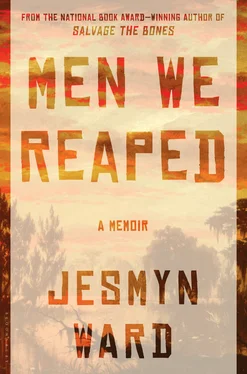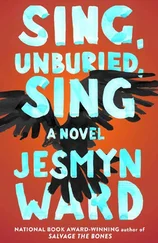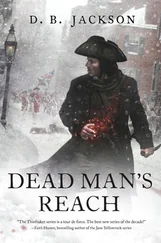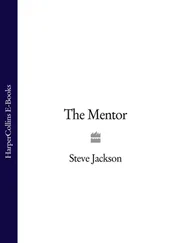“So what you doing up there?”
“I’m trying to be a writer.”
“What you want to write?”
“Books about home. About the hood.”
“She writing about real shit,” Charine said.
“What you mean?” Demond asked.
“They be selling drugs in the book,” Charine said.
“For real?” Demond asked, took a swig of his beer.
“Yeah,” I said. Laughed, drank a third of my bottle.
“I told you she be writing about the hood,” Charine said.
“You should write about my life,” Demond said.
“I should, huh?” I laughed again. I heard this often at home. Most of the men in my life thought their stories, whether they were drug dealers or straight-laced, were worthy of being written about. Then, I laughed it off. Now, as I write these stories, I see the truth in their claims.
“It’d be a bestseller,” Demond said.
“I don’t write real-life stuff,” I said. It was my stock response for that suggestion, but even as I said it, I experienced a sort of dissonance. I knew the boys in my first novel, which I was writing at that time, weren’t as raw as they could be, weren’t real . I knew they were failing as characters because I wasn’t pushing them to assume the reality that my real-life boys, Demond among them, experienced every day. I loved them too much: as an author, I was a benevolent God. I protected them from death, from drug addiction, from needlessly harsh sentences in jail for doing stupid, juvenile things like stealing four-wheel ATVs. All of the young Black men in my life, in my community, had been prey to these things in real life, and yet in the lives I imagined for them, I avoided the truth. I couldn’t figure out how to love my characters less. How to look squarely at what was happening to the young Black people I knew in the South, and to write honestly about that. How to be an Old Testament God. To avoid all of this, I drank.
“I’ll think about it,” I said. I smiled. Demond smiled. The vein running down the center of his high forehead pulsed and the skin around his eyes bunched at the corners.
Rob put the last batch of the eighty pounds of crawfish to boil at midnight, cut the burner off, and then went inside and forgot about them, fell asleep. We all slept, drunk, lips tender, on sofas, on floors, in beds. I woke at 2:00 A.M. hungry and drunk and stumbled out onto the slab to find the pot cold, the crawfish bloated with water, soft and ruined, and rain falling, the drops fat and warm. The dominoes, the table, the chairs: all wet. When I stepped out into the grass, searching for some crawfish that had been spared, hidden away on a plate or container, the grass gave and my feet sank. Every step was an exercise in loss. I looked up into the rain, then gave up, slipped back inside, figured somebody would clean up the mess in the morning, and fell asleep in the bunk bed that my nephew slept in when he visited Nerissa.
Illusions was a club that had been many things before it became what it was for us that summer and the next. It had been a country bar, a teen club, a “Black” club, a pop club, and then finally it became what it would be when Katrina’s storm surge bulldozed the beachfront property flat: a Black club we affectionally called “Delusions.” The first floor consisted of a bar and small, crowded dance floor. Upstairs, there were pool tables, another bar, and a small space for a photographer to work, where my cousins and I took pictures in front of a banner spray-painted with a city skyline that was completely alien to the long, low towns of the Coast. God’s Gift, the frame around the Polaroid reads. When the club was packed to capacity, the walls sweated and the glass fogged with perspiration.
That night, I drove to Illusions while Nerissa rode in the passenger seat and my brother’s last girlfriend, Tasha, laughed in the back. We were perfumed, giddy, glad to be out of Nerissa’s apartment, out of Demond’s house, where we’d been spending a lot of time: out . I wore black. Rob and Demond followed in Demond’s car, an older-model Z40 sportscar, sleek and low to the ground. My old boyfriend Brandon met us there. Charine and C. J. had decided to stay at Nerissa’s apartment, watching Forrest Gump and smoking. Upstairs in Illusions, Rob gave us his shining grin, gold in his dark face, and bought Nerissa, Tasha, and me drinks. They were walk-me-downs, fluorescent blue and sweet, made of nearly every liquor behind the bar. I couldn’t taste the alcohol in it. I gulped mine down, anxious, almost, for the buzz to hit. We stood at the end of the bar with Rob and Brandon, a cigar at the corner of Rob’s mouth, watching the women gliding like sleek ducks through the crowd, dressed in gold and pastel denim, hairstyles molded stiff, and the men separated by hood, drinks in hand, stopping girls with a pinched waist, a grasped wrist, a smile, hey . I looked at the crowd of people and wondered at their stories, and for a sober moment I knew that their stories were ours, and ours theirs.
“Y’all want another one?” Demond asked. The corner of his mouth made a gesture at a smile.
“Yeah,” Nerissa said. I nodded, as did Tasha. He bought us each another drink, slid them across the bar to us. The clear plastic cups were cold to the touch, perspiring instantly. I drank. When I swallowed, I smiled at Demond in what was supposed to be an unspoken thank-you. Demond laughed and told me that he liked my outfit. His dreadlocks swung. He was handsome, fair, charming. Women approached him, lingered in his field of vision, waiting for him to talk to them, to hit on them, to say hello. He didn’t have to flirt. People were attracted to him, and he was charismatic enough to draw them even closer to him with conversation when he wanted to. When he didn’t the planes of his face were more severe and he was a closed door, his eyes peepholes viewed from the wrong side, obscuring everything. He had a temper. But that night he was all geniality.
I sucked up the drink: I was thirsty, and it was cold and lemony. I danced at the bar. Nerissa threw her wrist over my shoulder and danced with me. Tasha, who could dance better than both of us, laughed and drank. Everything turned hazy then: Demond’s face blurred, and I told my sister I didn’t feel so good. We went to the bathroom together. She took the last available stall, and I heard her vomiting into the toilet. I swayed and my throat burned. Something was wringing my insides out. I was wretched.
“Fuck it,” I said, and leaned over the garbage can, large and full to the brim. I threw up. Everything was hot and sticky: I could feel the bass thudding through the building from the dance floor downstairs through the grimy tile of the bathroom wall. Pretty girls using napkins to wipe sweat from their foreheads: they walked in and out of the bathroom, ignoring me. Some girl in purple and gold stumbled in wearing stilettos and said, “Get it all out, baby.” This was comforting, and I gurgled. Vomit splashed on the top layer of plastic cups. Nerissa came out of her stall, and suddenly I was finished. The world spun. I grabbed her shoulders, followed her out of the bathroom, and blacked out.
When I came to, I was in the backseat of my car, slumped over in the center. Nerissa was on my right, leaning over on my shoulder. Tasha’s back was to me because her head rested on the upholstered seat. Brandon and Rob and Demond’s voices were loud. I opened my eyes only long enough to see them standing near the two open doors of the car, smiling down at us. The breeze from the Gulf cut cleanly through the car, hot and salty. I couldn’t move.
“Walk-me-down, huh? It sure walked them down,” Brandon said.
“Look at them,” Rob said.
We were all sick.
“It’s not funny!” Tasha yelled, and in my drunken stupor, I felt like laughing. They did this: despite all, they made us laugh damn near every time we were together. But I couldn’t open my mouth. I could only listen as Demond laughed for me, clean and cutting, and the wind carried it away across the parking lot to the Outback steak house, where it sputtered away like a desultory breeze. I curled in on myself. All I wanted in the world was for it to go dark, to not exist. I wanted to black out again. Then I did.
Читать дальше












